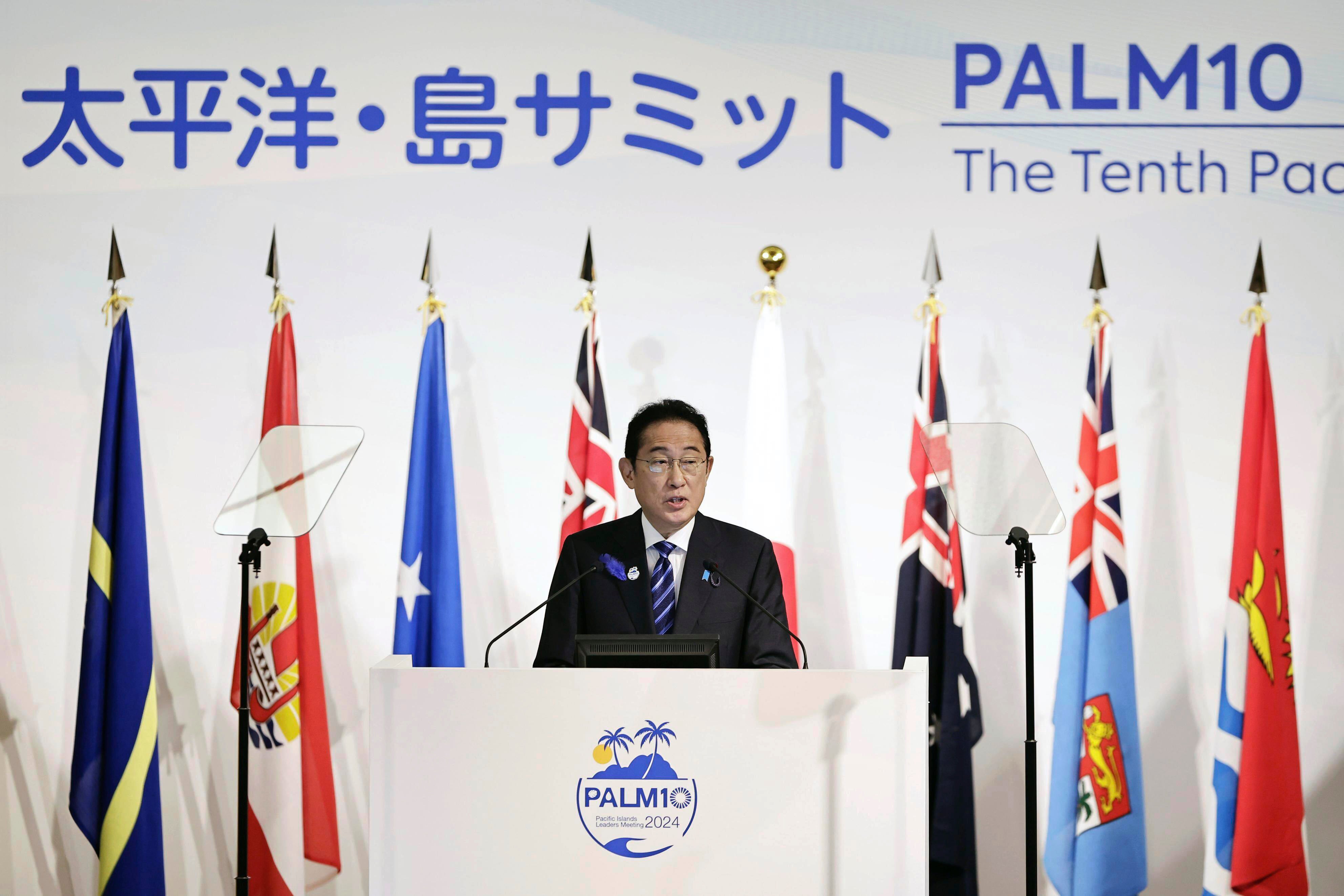Japan hosts Pacific Island leaders summit to firm cooperation amid growing China influence in region
Japan is hosting a summit with leaders from more than a dozen Pacific island nations, seeking to deepen cooperation and increased support for a rules-based free and open Indo-Pacific

Japan is hosting a summit Thursday with leaders from more than a dozen Pacific island nations, seeking to deepen cooperation and increased support for a rules-based free and open Indo-Pacific amid China’s growing influence in the region.
The Pacific Islands Leaders Meeting, or PALM, launched under Japanese initiative in 1997, has become Japan’s key diplomatic tool to deter China’s security and economic influence in the region by strengthening its ties with the Pacific Island Forum members, stressing its willingness to stand by them and maintaining unity.
In his opening remarks, Japanese Prime Minister Fumio Kishida said he hoped to elevate Japan’s ties with the Pacific islands to a higher stage and renew its commitment to “walk together toward the future.” He stressed the importance to join hands to quickly tackle mutual issues such as the climate change.
Cook Islands Prime Minister Mark Brown, who is co-chairing this year’s summit, welcomed Japan’s approach to work with the PIF members “as equals” to achieve their 2050 strategy for the Blue Pacific, “our vision for a region of peace, harmony, security, social inclusion, and prosperity.”
He noted climate resilience and disaster risk management, sustainable management of oceans, economic resilience, ensuring people-centered development and investment in technology and connectivity as key areas for cooperation.
Japan also seeks to share with the leaders the importance of maintaining the rules-based, free and open international order in the region, with China in mind but carefully not spelled out.
South Pacific island nations have become a focus of security concern among Japan and its ally the United States and their regional partners such as Australia and New Zealand in recent years as Beijing increases its presence in the region where many island nations are economically China-dependent, as with many other countries.
Leaders from 18 Pacific Island Forum member nations and regions are expected to adopt a joint statement stating their commitment to work together in areas including maritime security, defense cooperation, climate change and economic development and other key issues at the end of the meeting Thursday.
Kishida has been also holding bilateral meetings with the leaders since earlier this week on the sidelines of summit.
In his separate meetings Wednesday with several leaders, including Vanuatu, Tuvalu, Niue and Papua New Guinea, Kishida announced Japan’s support for infrastructure, fishing projects and other areas.
___
AP journalist Ayaka McGill contributed to this report.
Bookmark popover
Removed from bookmarks